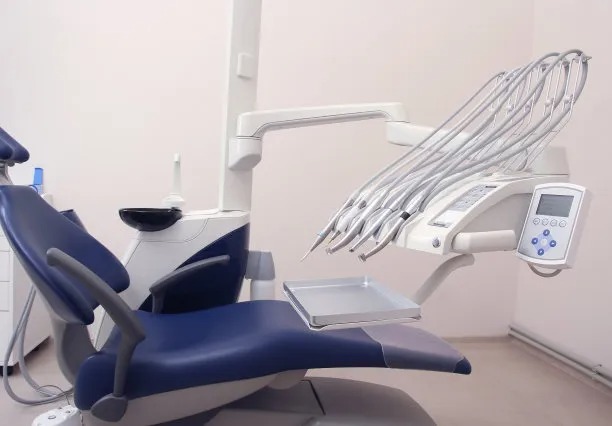Summary: Dental implant surgery offers a permanent solution for missing teeth, enhancing both aesthetic appeal and functionality. However, to ensure optimal results and a smooth recovery, it is vital to consider essential tips and precautions before the procedure. From thorough consultations and understanding the procedure to managing expectations and following post-operative care, this article outlines key aspects that can lead to a successful dental implant experience. By paying attention to these guidelines, patients can significantly improve their chances of achieving lasting and satisfying results.
1. Importance of Comprehensive Consultation

Before undergoing dental implant surgery, it is critical to engage in a comprehensive consultation with your dentist or oral surgeon. This step allows the healthcare provider to assess your oral health and discuss your specific needs. During this consultation, it is essential to provide your dental professional with a thorough medical history and discuss any underlying conditions, such as diabetes or cardiovascular issues, which could affect the surgery and recovery.
Your chosen dental expert should perform a detailed examination, utilizing X-rays or 3D imaging to evaluate the bone structure in your jaw and identify any potential complications. This not only informs the treatment plan but also helps in understanding whether bone grafting might be necessary to ensure the implant’s stability. Open communication with your dentist fosters a trusting relationship and sets the stage for a smoother process.
In addition, it is wise to seek a second opinion if you feel uncertain about the recommendations made during your initial consultation. Different professionals may offer varied insights, and having multiple perspectives can help you make an informed decision regarding your dental implant procedure.
2. Understanding the Procedure Details
Having a clear understanding of the dental implant procedure is vital before going under the knife. Each step of the process should be explained in detail by your dentist, including how the implant is anchored into the jawbone and what materials will be used. Knowing these specifics can help reduce anxiety and prepare you mentally for the surgery.
Furthermore, discuss any sedation options that may be available to you. Many patients experience anxiety about dental procedures, and knowing that you can opt for local anesthesia or sedation can ease your worries. Knowing what to expect during the surgery allows you to mentally prepare and reduces the fear of the unknown.
Another aspect to consider is the timeline of the entire process. Dental implants typically require multiple visits spanning several months, including healing time. Understanding this process helps you coordinate your schedule and manage expectations regarding recovery and when you can enjoy the full benefits of your new smile.
3. Managing Expectations and Recovery
Managing your expectations related to dental implant surgery is crucial for optimal outcomes. While dental implants have a high success rate, not every case will yield immediate perfection. Discuss your desired aesthetic and functional outcomes with your dental professional. They can provide practical insights that align your goals with realistic results.
Moreover, recovery is a necessary phase and varies from person to person. General discomfort and swelling are common post-surgery, and patients should be prepared for this. Establish a recovery plan that includes proper medication, rest, and follow-up appointments. Knowing that slight discomfort is temporary can help you stay positive during this period.
Finally, maintaining a healthy lifestyle plays a critical role in recovery. Limit alcohol and refrain from smoking, as these habits can hinder healing. A balanced diet rich in nutrients will promote better recovery and ensure that your new implant adapts well in your jawbone.
4. Post-Operative Care Requirements
Following your dental implant surgery, adhering to post-operative care instructions is vital for ensuring optimal recovery and results. Proper oral hygiene practices should be established immediately, including gentle brushing and avoiding the surgical site. Your dentist will provide specific instructions, including how to maintain cleanliness without irritating the area around the implant.
Additionally, attend all follow-up appointments to monitor the healing process. Regular check-ups allow your dentist to catch any potential issues early, ensuring they can be addressed swiftly. These visits are also an excellent opportunity for you to discuss any concerns or side effects you may be experiencing post-surgery.
Lastly, patience is crucial during your recovery. It might take time for the implant to properly integrate with your jawbone. While you may feel eager to return to your usual routine, listen to your body, and give yourself ample time to heal properly. Rushing the recovery process can lead to complications, hindering the success of your dental implant.
Summary:
In summary, undergoing dental implant surgery requires thoughtful consideration and preparation. Engaging in a thorough consultation, understanding the procedure and recovery phase, managing expectations, and adhering to post-operative care are all pivotal steps that contribute to successful outcomes. By following these essential tips and precautions, patients can enhance their experience and ensure a lasting, beautiful smile.
This article is compiled by Vickong Dental and the content is for reference only.
Vickong Dental
Vickong Dental is a large medical group established in Hong Kong in 2008 by professors from well-known medical universities in Guangdong and Hong Kong, as well as medical doctors from key national '985' universities (including Master's supervisors and senior professors). The chain of branches brings together expert dentists with PhDs and Master's degrees from Hong Kong and Mainland China, committed to providing high-quality dental treatment.
"Vickong Dental Practices the University Motto of 'Healing and Serving Society,' with a Stable Operation for Sixteen Years. It Has Been honored with Hong Kong Enterprise Leaders's Choice,' and is a Global Trusted Implant Center for the Nobel Implant System. Recommended by Hong Kong Metro Broadcast and Guangdong Television, it Serves Customers from Over Thirty Countries and Regions, Gaining the Trust and Favor of Citizens from the Guangdong-Hong Kong-Macau Greater Bay Area and Surrounding Cities.

Thousands of customers' unanimous praise
The most recognized and highly recommended dental service by customers in the Guangdong-Hong Kong-Macau Greater Bay Area
We Ensure You Receive Detailed Care and Attention Here
Hong Kong standards, Shenzhen prices, Your Trusted English-speaking dentists

Vickong Dental Medical-Grade Instrument Disinfection Process
Vickong Dental Medical-Grade Instrument Disinfection Process

Vickong Dental Chain: A Warm and Comfortable Environment for Treatment






Appointment Hours

Q&A
Why choose Vickong Dental?
Vickong Dental practices the university motto 「Medicine to Benefit Society」, with each branch bringing together highly qualified dentists with doctoral and master’s degrees from Hong Kong and the Mainland, and has maintained seventeen years of steady operation。Recipient of 「2024 Hong Kong Enterprise Leaders Brand」, 「2025 Hong Kong Enterprise Leaders Brand」, a Nobel Biocare Global Trusted Implant Center, and a brand recommended by Metro Radio Hong Kong and Guangdong TV。
To date, we have served customers from more than thirty countries and regions,earning exceptionally high word-of-mouth recognition and trusted recommendations from residents across the Guangdong-Hong Kong-Macao Greater Bay Area and surrounding cities
We have eight major branches in Zhuhai、Shenzhen,and a consultation and service assurance center in Hong Kong,so you can book a free consultation at any time for any questions,which is very reassuring.
If I do not accept the quotation after the CT scan, will I be charged??
No! As long as the actual treatment has not started, you will not be charged any fees.
Will there be any additional charges during the treatment process?
No, there won’t be any additional charges. Before treatment begins, we will clearly explain the treatment plan and its corresponding fees. Only after the patient agrees and signs the consent form will we proceed with the dental service.
Can I pay in Hong Kong dollars?
Yes. Vickong Dental accepts payment in Hong Kong dollars. The amount will be converted based on the exchange rate of the day, and the applicable rate will be clearly communicated to you in advance.
Can I reschedule my appointment at any time?
Yes. Please contact us via **WeChat** or **WhatsApp** as early as possible, providing your original appointment time and details, along with your preferred new date and time slot for rescheduling.













